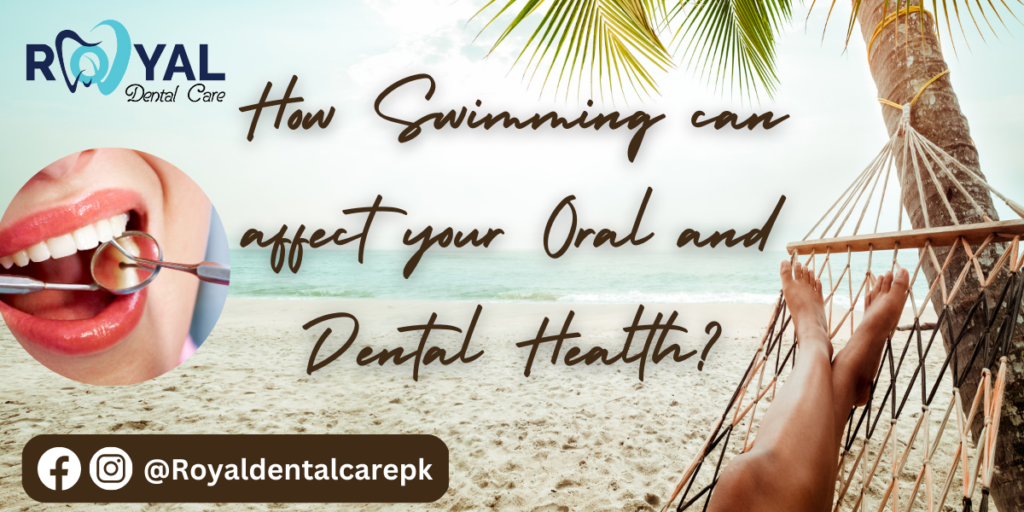
With a change of weather, especially when it turns HOT, most of us move towards a cooler place to beat the summer heat. Usually, people enjoy their summer vacations swimming in cool pools or the sea. Swimming is also a good exercise for your whole-body workout. Have you have ever wondered how swimming can affect your teeth and oral health? Keep on reading to learn the effects of swimming on oral health.
Generally, chlorine is used in most swimming pools to keep the water clean and kill bacteria. Excessive chlorine in the pool can damage your teeth by causing swimmer’s calculus.
What is Swimmer’s Calculus?
The excess chlorine in the water can accumulate on the teeth surfaces known as swimmer’s calculus. This makes your teeth appear yellowish-brown. This may also lead to erosion of your teeth’ enamel. If the enamel erodes, it can cause teeth sensitivity. The risk of dental decay is also increased.
How Can You Avoid Swimmer’s Calculus?
You can avoid it by simply managing the pH of your pool water. Pool water pH is best when kept between 7.2 to 7.8 and a free chlorine concentration of at least 1 ppm in pools and at least 3 ppm in hot tubs/spas. Free available chlorine is the more active form of chlorine that kills germs. So, before you start swimming please make sure recommended chlorine levels in swimming pools, otherwise, if you are unsure it is recommended to hire a professional to adjust proper chlorine levels before you swim.
Why wearing Mouth Guards is important during swimming?
Mouth guards protect you from accidental water-based (water polo or water volleyball) sports injuries. Moreover, they also prevent direct contact with chemicals in the water. So a safety precaution wearing a mouth guard during swimming is recommended.
Shop Now from AliExpress: Mouth Guard Teeth Protector With Box
Some useful Tips and Tricks to avoid swimming side effects on oral health:
- Always clean your mouth by rinsing with fresh water after swimming to get rid of any harmful chemical deposits that might have built up during swimming.
- Prevent direct contact with chlorine with your teeth by keeping your mouth closed while you swim. You can also consider mouth guards easily available from Amazon for this purpose.
- To minimize the risk of losing or damaging removable dental appliances, it is better to remove them before swimming. You can store them in their protective plastic cases in a locker away from the poolside so there are fewer chances of misplacing them.
- Regular Dental Check-Ups are necessary if you swim more frequently.
Summary:
- Swimming is a healthy activity.
- Combining good chlorine and pH control prevents damage to teeth and oral health.
- Excessive chlorine can cause Swimmer’s Calculus.
- Always rinse with fresh water after swimming to keep your teeth and mouth clean.
Liked this article?
Donate
Get Connected:
Stay updated with our new blog posts and exciting offers by following our social media:


